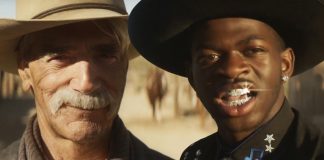Mental skills and mental toughness are as much a part of riding as horsemanship and training. Whether you need help moving past a bad experience or leveling up in competition, a riding coach can help you remove obstacles in your path.
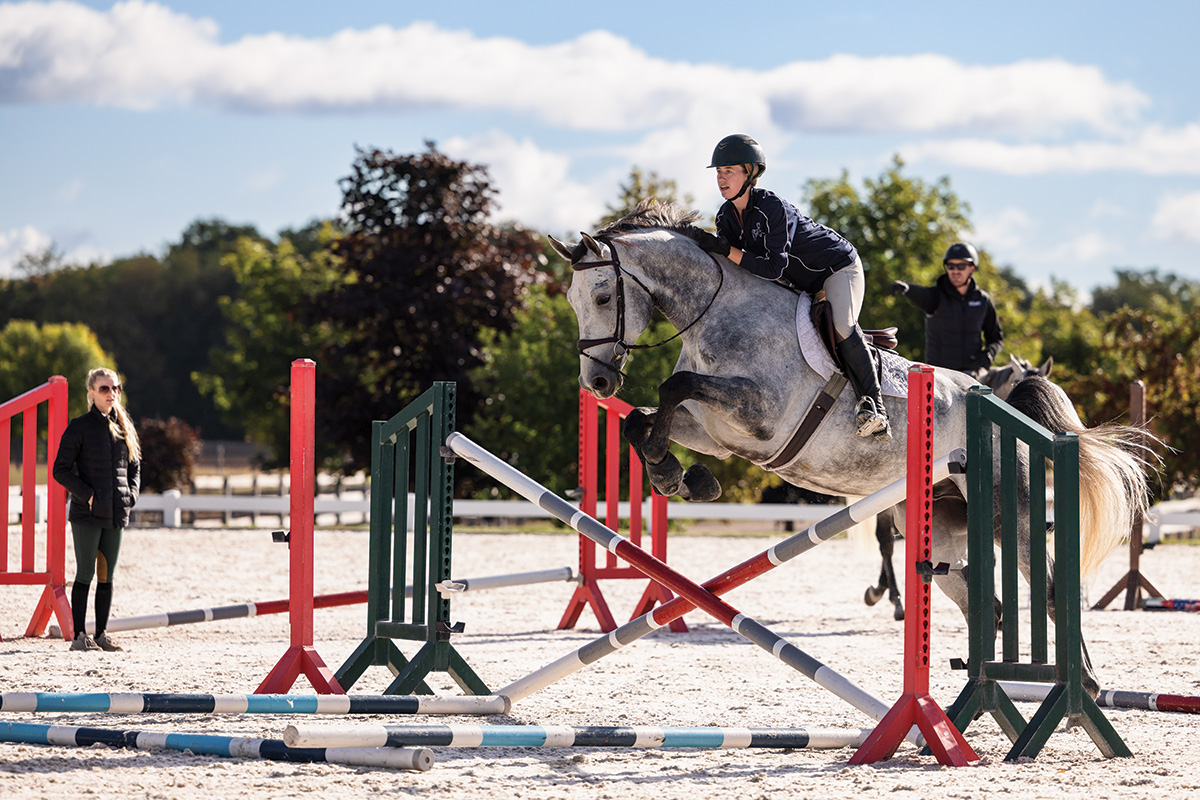
Anxiety After Injury
“I eventually wanted to join a show team and also show in the alumni division of a college circuit,” she says. “I posted in a Facebook group asking for a professional experienced in working with riders with anxiety and timid tendencies. The coach I found got me up to speed and in those doors with the greatest support and mentorship.”
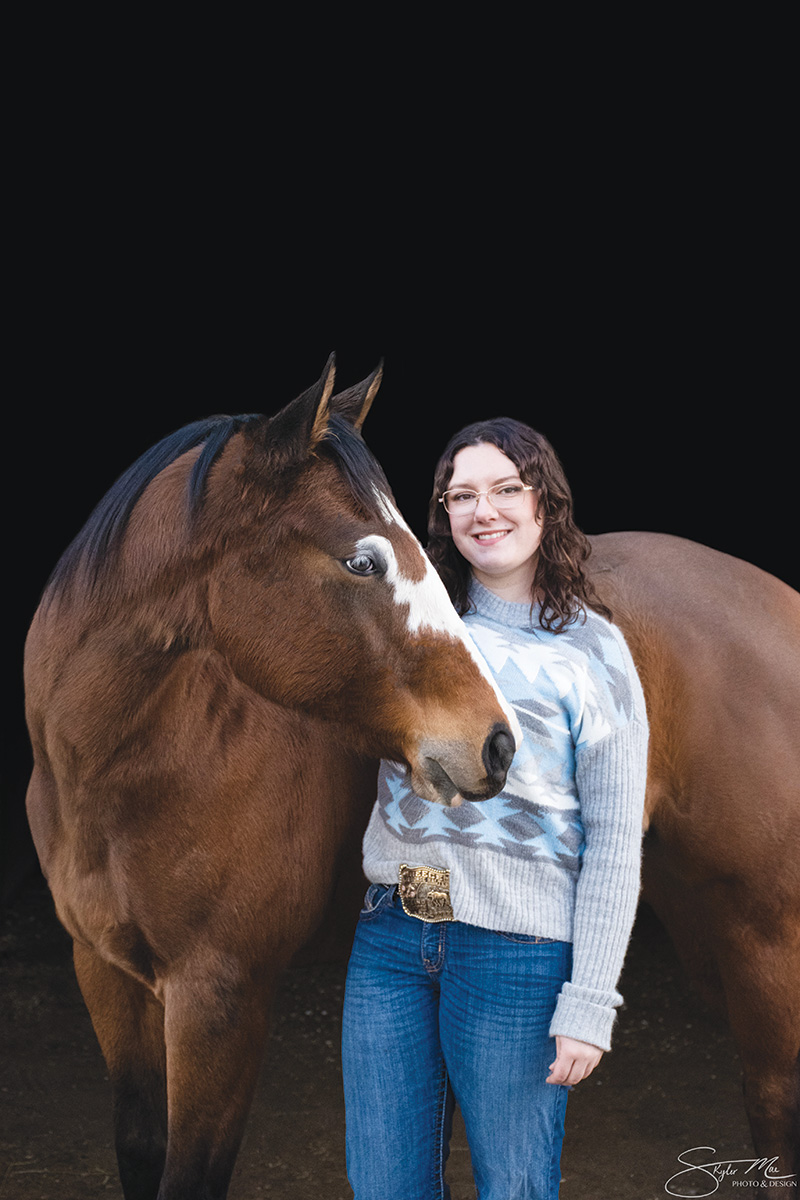
Wanits also found an equestrian fitness coach who was instrumental in helping her regain strength and confidence. At the end of the 2022 show season, she finished fourth in the region in the western alumni division and was named Champion Jr. Horse and Reserve Walk Trot Jog Champion in her local show circuit.
A Long Hiatus
Tammy Thomas rode as a child without formal lessons, but had to put her passion for riding on hold for 40 years. In retirement, she bought her first horse and knew she needed a riding coach to help her chase her dreams.
“Because I started when I was older, I knew I didn’t have as much time left in the saddle, so I needed someone who could teach me to ride my horse while working toward my goals,” says Thomas. “We spend a lot of time setting goals, and she tells me what might not be realistic at this point, or where she wants me to step up.”
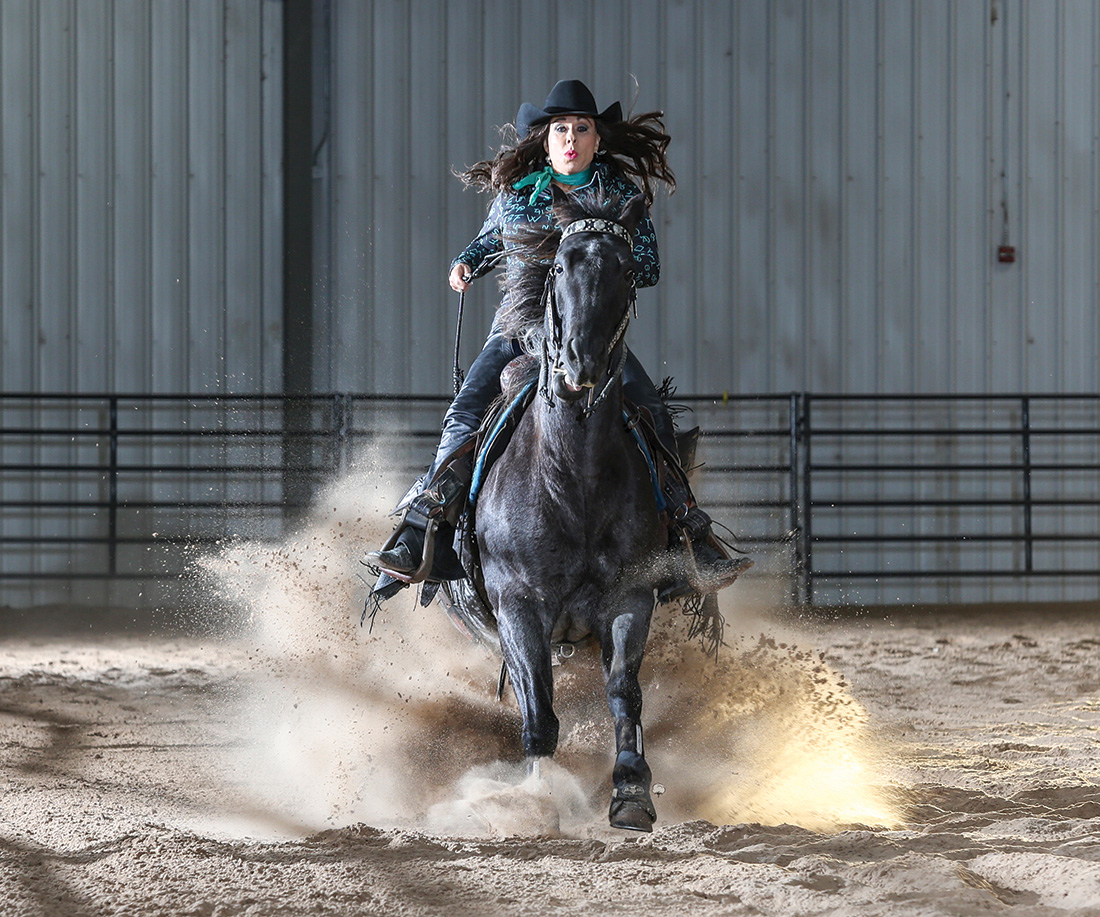
With her coach’s guidance, she finished her first-ever show season as the Green Novice Rider Reserve Champion of her show circuit. Her next show season, she won the Intermediate Reserve Champion, and by her third show season, she was winning the Limited Non Pro Championship title.
Trainer vs. Coach
It’s important to tease out the differences between a coach and a trainer. A trainer is a skilled horse person who teaches technical skills and maneuverers to you and/or your horse. A coach may also be a trainer, but goes beyond the technical aspects and focuses on your goals and mental skills to achieve your desired outcomes.
“The coach’s job is to blend everything together and to help riders understand what they want to accomplish and why,” says Shannon Pigott. She is a western performance horse trainer and an executive coach based in Fredericksburg, Texas, who formerly worked in corporate America. “My No. 1 goal is to help clients understand what they want to accomplish and why, not just the ‘how to do it.’”
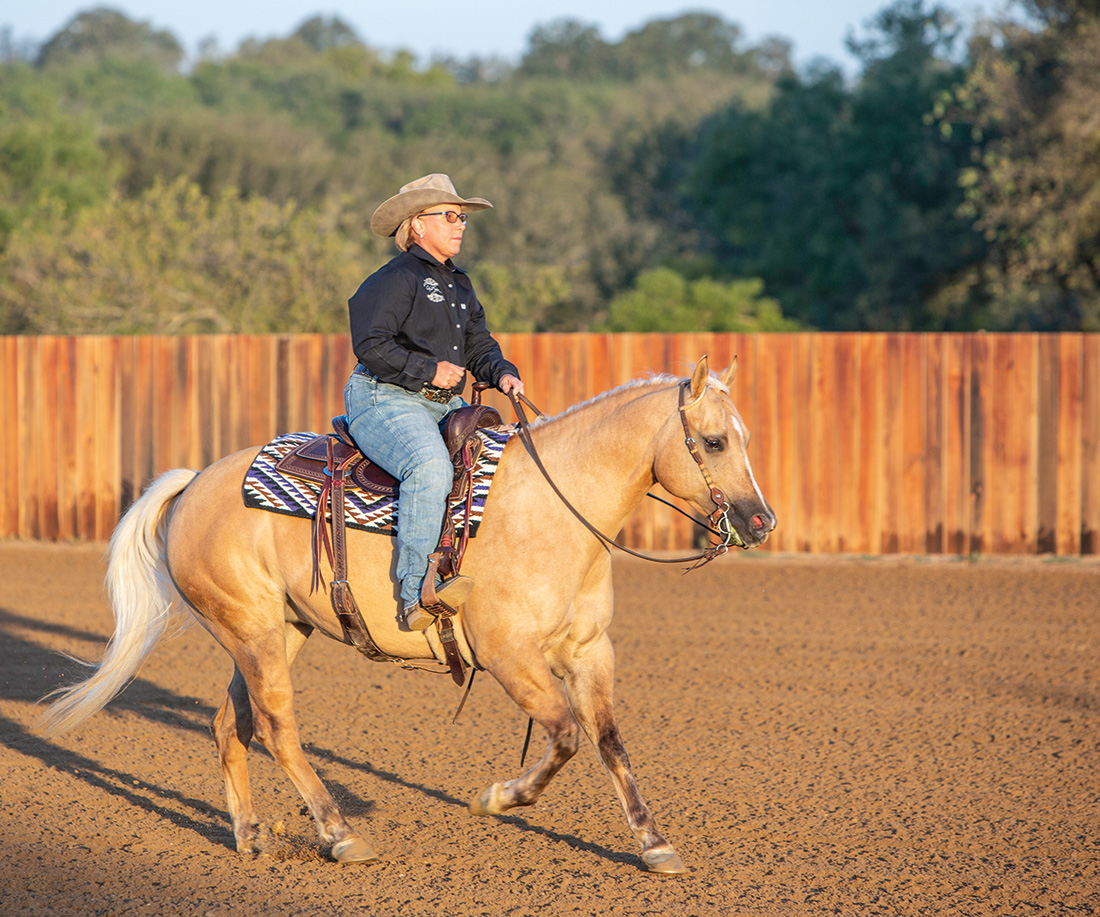
Leslie Holleman rode hunter/jumpers through young adulthood. After a 25-year break, she jumped back into riding in a new discipline—American Quarter Horse Association (AQHA) ranch riding and ranch trail. But ranch versatility caught her eye. She knew she needed lessons to learn how to perform the maneuvers properly. But she also wanted more: a coach who focused as much on the mental skills as the technical skills.
“A coach may also be a skilled rider and trainer, but they are highly skilled at helping you communicate your goals, translating that into a forward trajectory to level up, and working on the mental management of stress and confidence that comes with showing,” says Holleman.
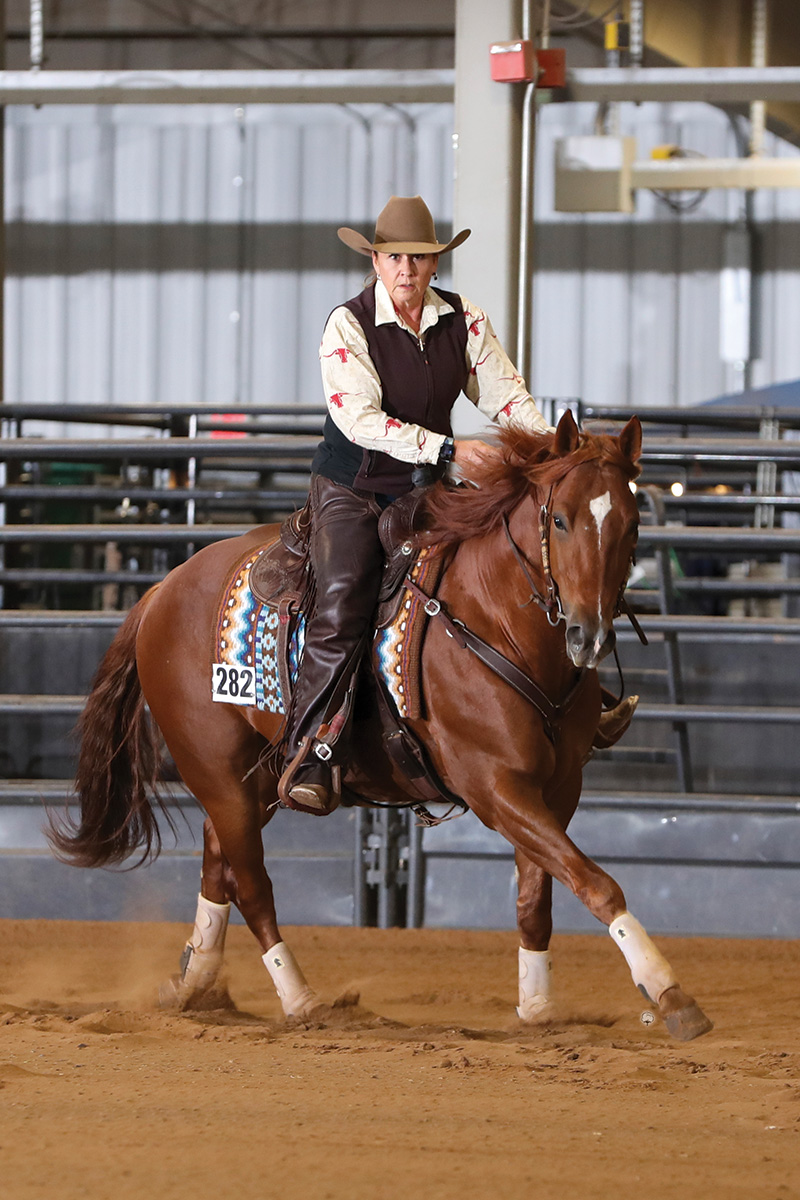
Finding a Coach
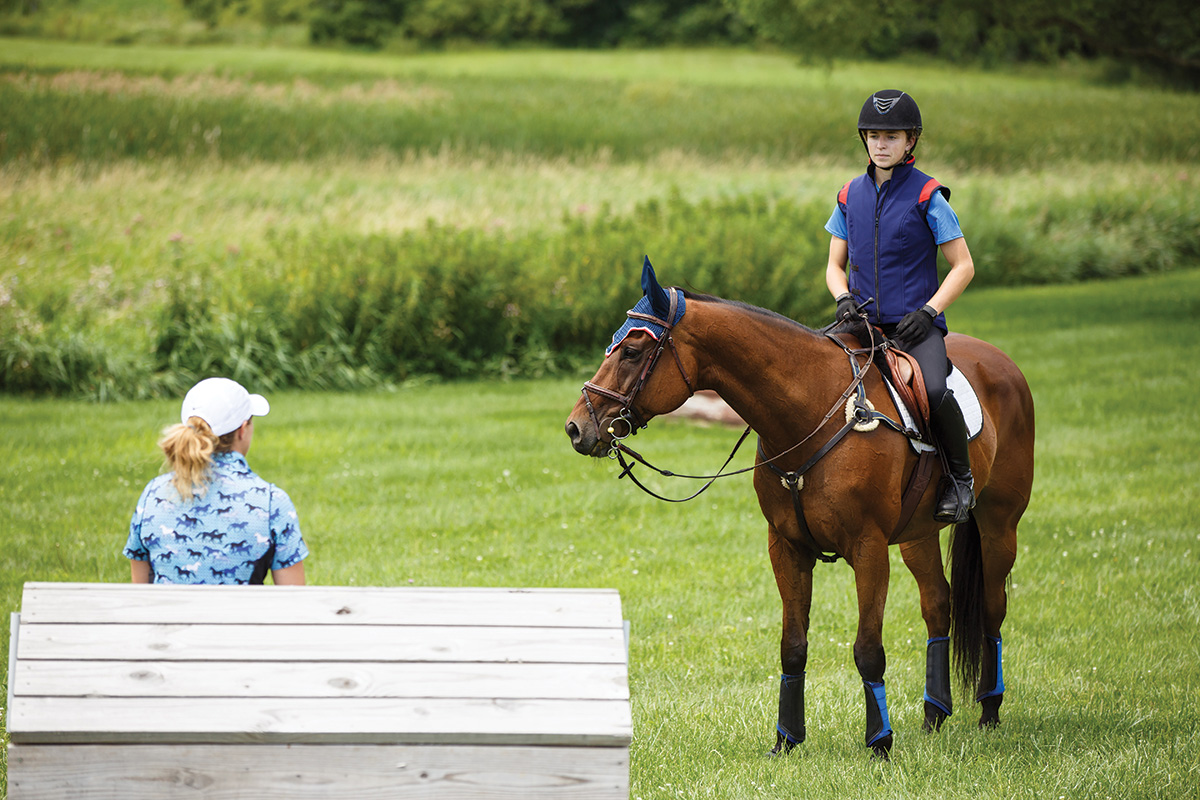
Every coach brings a unique perspective and approach to their program. That diversity in skillsets means there is a person perfectly suited to your goals, values, and learning styles, and these three tips can help you find the right coach for your needs.
1. Focus on fit: The instant Holleman read her coach’s bio on the Downunder Horsemanship brand ambassador forum, she knew she had found the right person.
“Her bio said, ‘I’m a people coach, and I focus on novice riders and versatility ranch horse,’” says Holleman. “I was like that’s great—that’s me!”
Working with a riding coach is a commitment, with many coaches requiring a minimum of six months to a year in their program. So, knowing a bit about the individual before making the investment is critical.
“Choose someone whose values align with yours and who will allow you to explore what is important to you and help you develop a plan to achieve your goals,” Pigott said. “I recommend interviewing people and taking a few lessons with different people until you find the right fit.”
2. Know your learning style: People learn and feel motivation differently. Thomas, a retired educator, knew her coach frequently uses a classroom style setting, and she appreciates that approach.
“If you learn best by having someone show you what to do and then having you go out and do it, you need a coach who teaches that way,” she says. “If you’re an auditory and lecture-type learner, choose that type of coach.”
The Wrong Fit
Working with a riding coach is a lot like being in a relationship, and not all work out as hoped. It’s important to recognize when it’s time to break up.
“If you find yourself in a spot where the activities aren’t fun anymore, riding is a chore, you aren’t achieving the results you are looking for, or you feel like you have no support, start looking for someone different,” says Wanits. “Everyone deserves to have fun. Don’t lose your spark because you and your coach don’t jive.”
This article about hiring a riding coach appeared in the June 2023 issue of Horse Illustrated magazine. Click here to subscribe!




